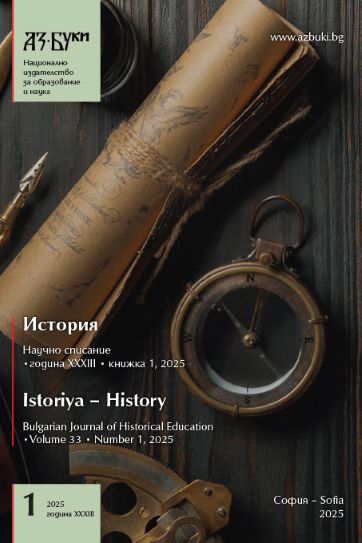The Project for Joint Occupation of Eastern Rumelia
The Project for Joint Occupation of Eastern Rumelia
Author(s): Nadezhda VasilevaSubject(s): History, Law, Constitution, Jurisprudence, History of Law, Diplomatic history, Political history, Modern Age, 19th Century
Published by: Национално издателство за образование и наука „Аз-буки“
Keywords: Eastern Rumelia; Balkans; Treaty of Berlin; Joint occupation; Britain; Russia
Summary/Abstract: A few months prior to the planned withdrawal of the Russian army on the 3rd of May 1879, and also as the term of the European Commission’s work approached its closure, the Great Powers reached a deadlock in Eastern Rumelia. Despite the inherently liberal nature of the Organic Statute elaborated by the Commission, which aimed to grant comprehensive rights to the inhabitants of the province and to establish autonomy, the implementation of Articles XV and XVI of the Treaty of Berlin ‒ allowing the Ottoman authorities to maintain garrisons on the border and send troops into the province ‒ risked triggering an armed resistance from the Bulgarian population against the introduction of the Ottoman authority. In response, the Russian authorities warned that they would be compelled to return to protect the population if an insurrection broke out. However, the British cabinet declared that any such action would lead to war. To avoid this, Britain and Russia began negotiations for the implementation of a joint occupation of Eastern Rumelia by the European forces.The project for a joint occupation engaged the diplomatic corps of the Great Powers from December 1878 to April 1879. Given the complex diplomatic challenges posed by the project, skillful maneuvering, the use of threats, and the pursuit of mutually beneficial agreements threatened to reopen the Eastern Question. The purpose of this research is to analyze Britain’s political motives for introducing a foreign occupation of Eastern Rumelia in the context of the strategic interests it sought to secure in the Balkans and to examine Russia’s political attitude and response to this issue.The main sources used in the preparation of this study are documents from The National Archive, the Private Archive of Lord Salisbury and published documents from the Russian archives.
Journal: История
- Issue Year: 33/2025
- Issue No: 1
- Page Range: 24-42
- Page Count: 19
- Language: English
- Content File-PDF

